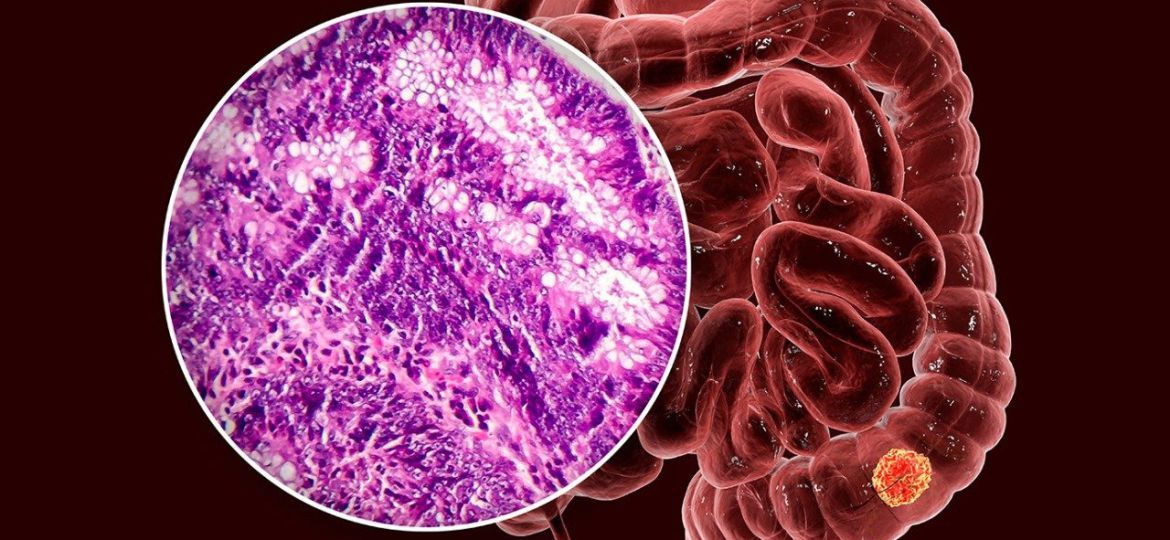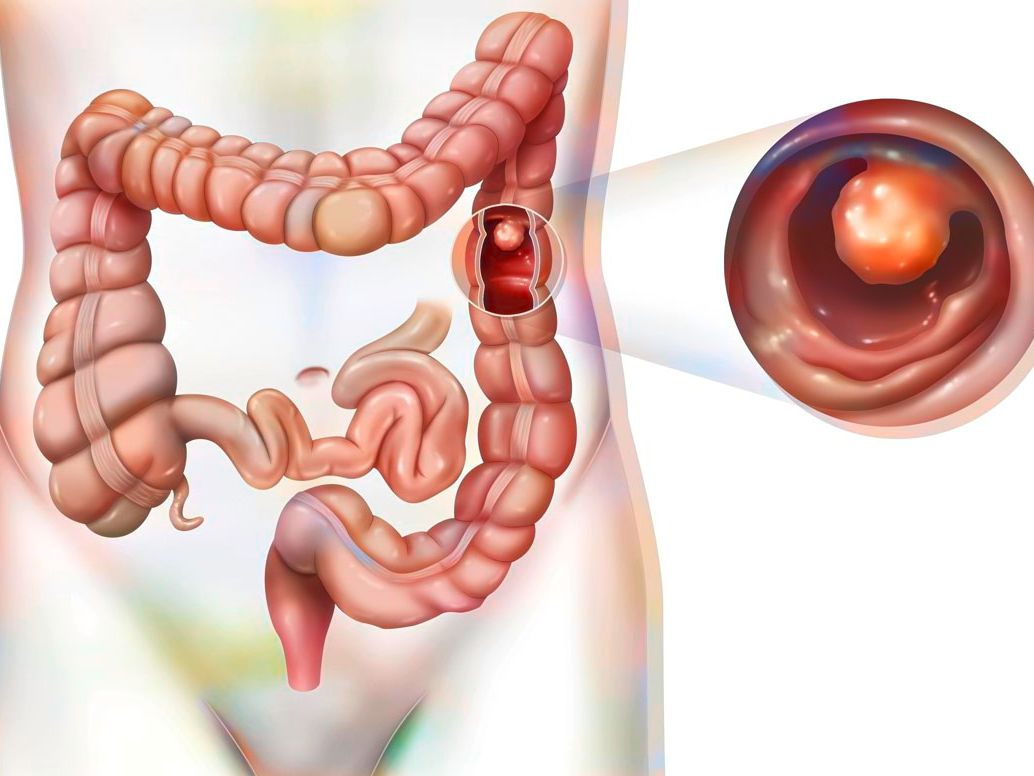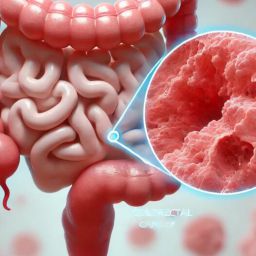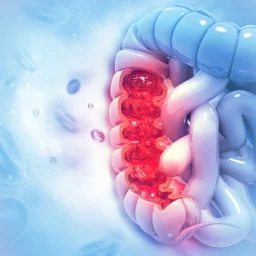
The Immune System’s Role in Cancer Defense
The immune system is our body’s defense mechanism against foreign invaders and abnormal cells. It comprises two key components:
- Innate Immunity: The first line of defense, which includes macrophages, dendritic cells, and natural killer (NK) cells, provides a rapid response to pathogens or abnormal cells.
- Adaptive Immunity: This more specific and long-lasting response involves T cells and B cells, which recognize and destroy specific antigens.
In the context of cancer, these components work together to identify and eliminate tumor cells through a process called immune surveillance. However, when this surveillance fails, cancer cells can evade detection and proliferate.
How Colorectal Cancer Impacts the Immune System
1. Immune Evasion Mechanisms
Cancer cells develop sophisticated strategies to escape immune detection. In colorectal cancer, these mechanisms include:

- Downregulation of Antigens: Tumor cells reduce the expression of surface molecules that would typically signal their abnormality to the immune system.
- Immunosuppressive Microenvironment: CRC tumors release cytokines and growth factors that suppress immune activity, creating an environment where cancer cells can thrive.
- Checkpoint Activation: Tumors exploit immune checkpoint pathways, such as PD-1/PD-L1, to deactivate T cells that would otherwise attack them.
2. Chronic Inflammation
Chronic inflammation is both a risk factor and a consequence of colorectal cancer. Persistent inflammation in the colon, often due to conditions like inflammatory bowel disease (IBD), can promote mutations and tumor development. Once cancer develops, the inflammatory microenvironment can further suppress effective immune responses.
- Pro-inflammatory Cytokines: Molecules like IL-6 and TNF-alpha, commonly elevated in CRC, not only promote tumor growth but also impair immune cell function.
- Tumor-Associated Macrophages (TAMs): These immune cells, reprogrammed by the tumor, shift from an anti-tumor (M1) phenotype to a pro-tumor (M2) phenotype, aiding in immune suppression.
3. Immune Cell Dysregulation
Colorectal cancer alters the behavior and function of key immune cells:
- T Cells: CRC reduces the activity of cytotoxic T cells, which are crucial for killing cancer cells. Regulatory T cells (Tregs), which suppress immune responses, are often increased in the tumor microenvironment.
- Natural Killer (NK) Cells: NK cells are essential for eliminating abnormal cells, but in CRC, their activity is often diminished.
- Dendritic Cells (DCs): These cells are responsible for presenting antigens to T cells, initiating an immune response. In CRC, dendritic cells become less effective, hindering adaptive immunity.
The Tumor Microenvironment and Immune Suppression
The tumor microenvironment (TME) plays a central role in shaping immune responses in colorectal cancer. This dynamic environment comprises cancer cells, stromal cells, immune cells, and signaling molecules that collectively influence tumor progression.
- Hypoxia: Low oxygen levels in the TME promote the secretion of immunosuppressive factors and hinder immune cell infiltration.
- Myeloid-Derived Suppressor Cells (MDSCs): These cells accumulate in the TME and suppress T cell activation, further weakening the immune response.
- Extracellular Vesicles (EVs): Tumor-derived vesicles carry molecules that modulate immune cells, often tipping the balance toward immune suppression.
Immune-Related Biomarkers in Colorectal Cancer
Identifying biomarkers in CRC can help predict immune responses and guide treatment strategies. Some key biomarkers include:
- Microsatellite Instability (MSI): High MSI is associated with better responses to immunotherapy due to increased tumor mutational burden.
- Tumor Mutational Burden (TMB): A higher TMB leads to more neoantigens, making the tumor more recognizable to the immune system.
- PD-L1 Expression: Tumors with elevated PD-L1 levels are more likely to suppress T cells via the PD-1 pathway, but they may respond well to checkpoint inhibitors.
Immunotherapy in Colorectal Cancer
Immunotherapy has emerged as a promising approach to treating colorectal cancer, particularly in patients with MSI-high tumors. Key immunotherapy strategies include:

1. Immune Checkpoint Inhibitors
These drugs block pathways like PD-1/PD-L1 and CTLA-4, reactivating T cells to attack cancer cells. Approved checkpoint inhibitors for CRC include pembrolizumab and nivolumab.
2. Cancer Vaccines
Vaccines designed to stimulate an immune response against CRC-specific antigens, such as carcinoembryonic antigen (CEA), are under investigation.
3. Adoptive Cell Therapy (ACT)
This approach involves engineering a patient’s T cells to target cancer cells more effectively. Chimeric Antigen Receptor (CAR) T-cell therapy is a prominent example.
Strengthening the Immune System During CRC
Patients with colorectal cancer can take proactive steps to support their immune health alongside medical treatments:
1. Diet and Nutrition
A balanced diet rich in antioxidants, vitamins, and omega-3 fatty acids can enhance immune function. Foods like berries, leafy greens, and fatty fish are particularly beneficial.
2. Exercise
Moderate physical activity reduces inflammation and improves immune surveillance, making it a valuable part of cancer care.
3. Stress Management
Chronic stress impairs immune function. Practices like meditation, yoga, and deep breathing can help reduce stress and promote emotional well-being.
4. Adequate Sleep
Sleep is critical for immune regulation. Maintaining a consistent sleep schedule can support overall health and immune response.
Future Directions in CRC Immunology
Research into the interplay between colorectal cancer and the immune system is ongoing. Promising areas of study include:
- Personalized Immunotherapy: Tailoring treatments based on a patient’s genetic and immunological profile.
- Microbiome Modulation: Altering the gut microbiome to enhance immune responses to CRC.
- Combination Therapies: Integrating immunotherapy with chemotherapy, radiation, or targeted therapy for synergistic effects.
Colorectal cancer significantly impacts the immune system, creating a complex interaction that can either hinder or promote disease progression. Understanding these dynamics is essential for developing effective treatments and improving patient outcomes. While colorectal cancer employs various strategies to evade the immune system, advancements in immunotherapy and supportive care offer hope for better management. By supporting the immune system through medical interventions, lifestyle changes, and stress reduction, patients can strengthen their resilience against the challenges of colorectal cancer.


